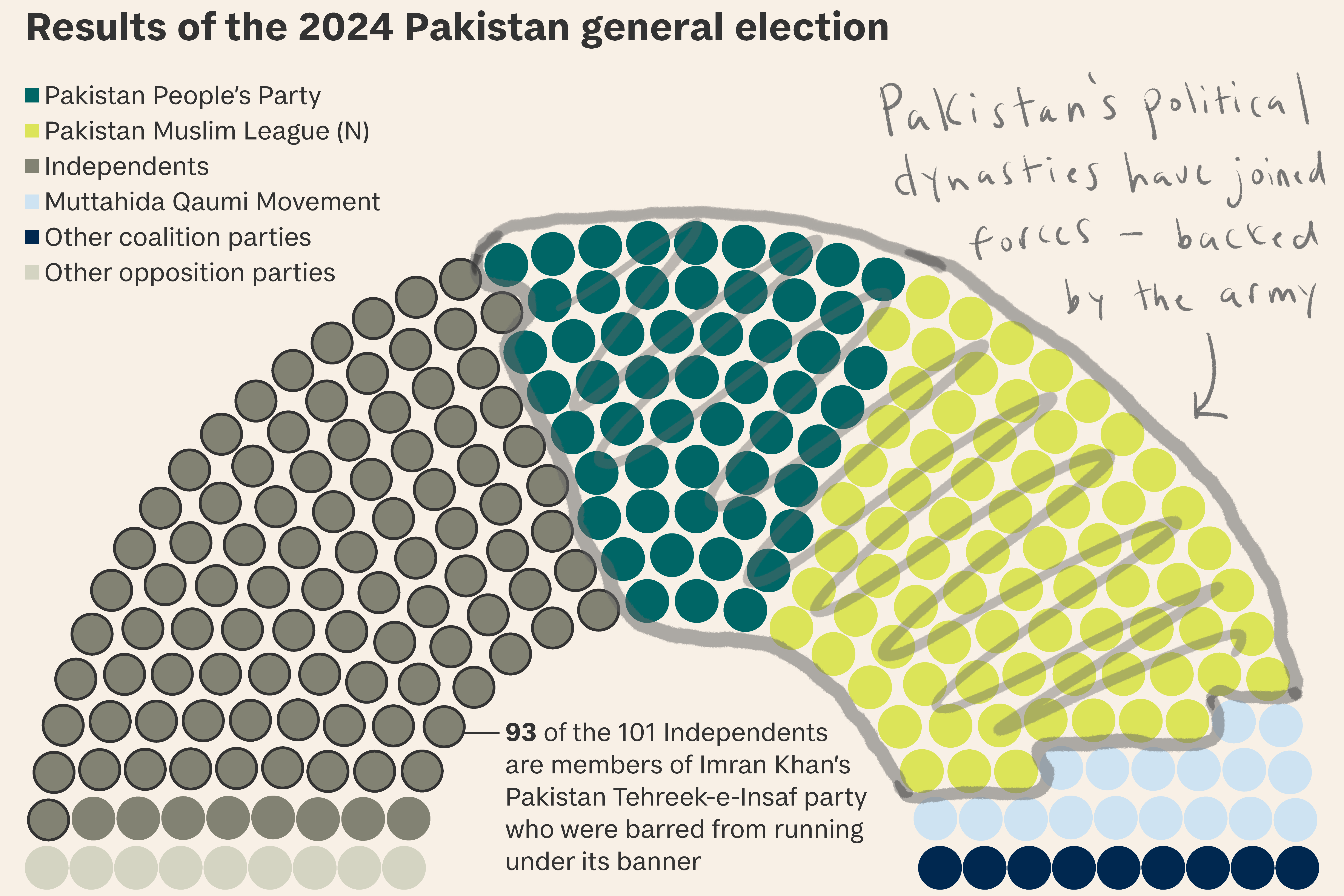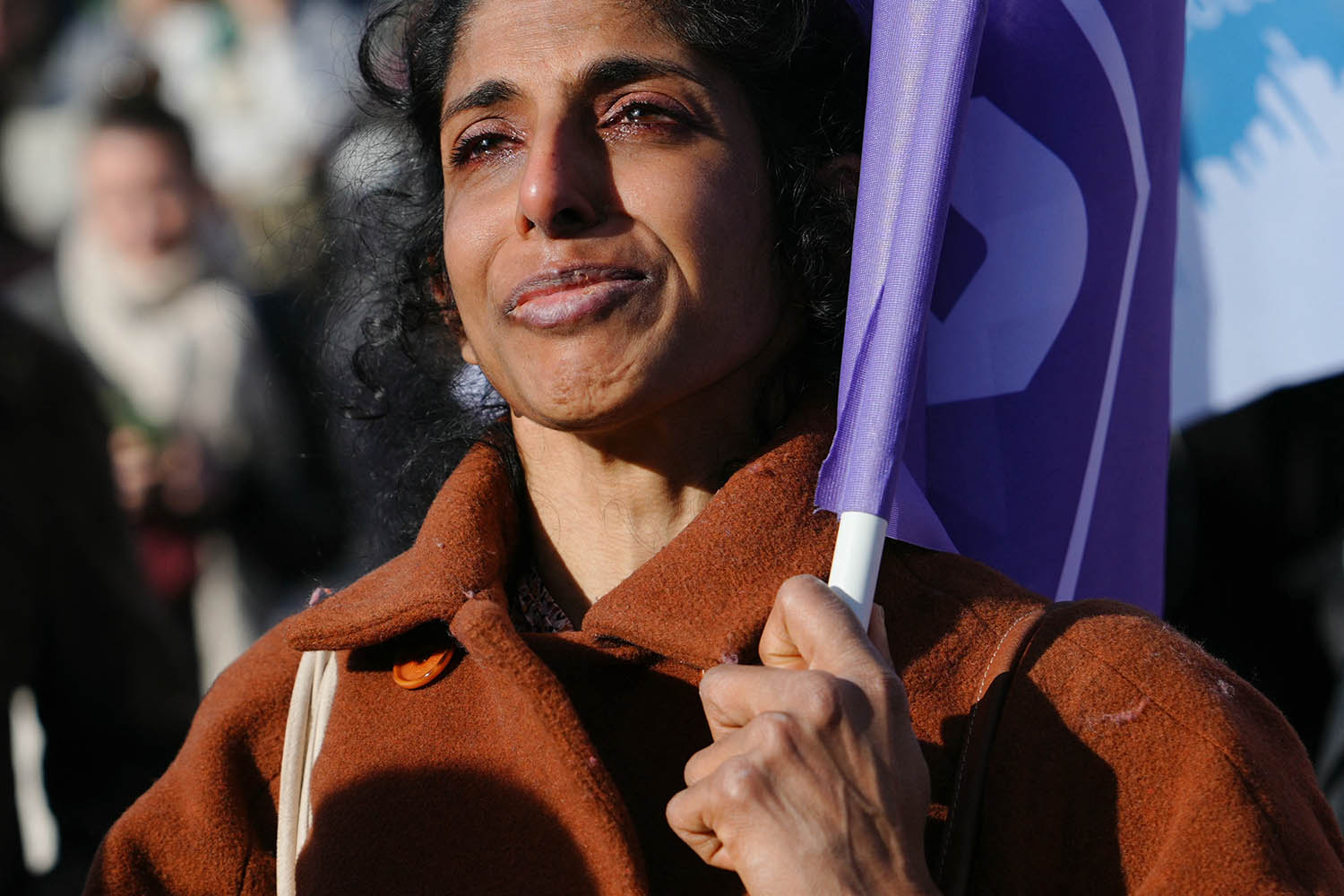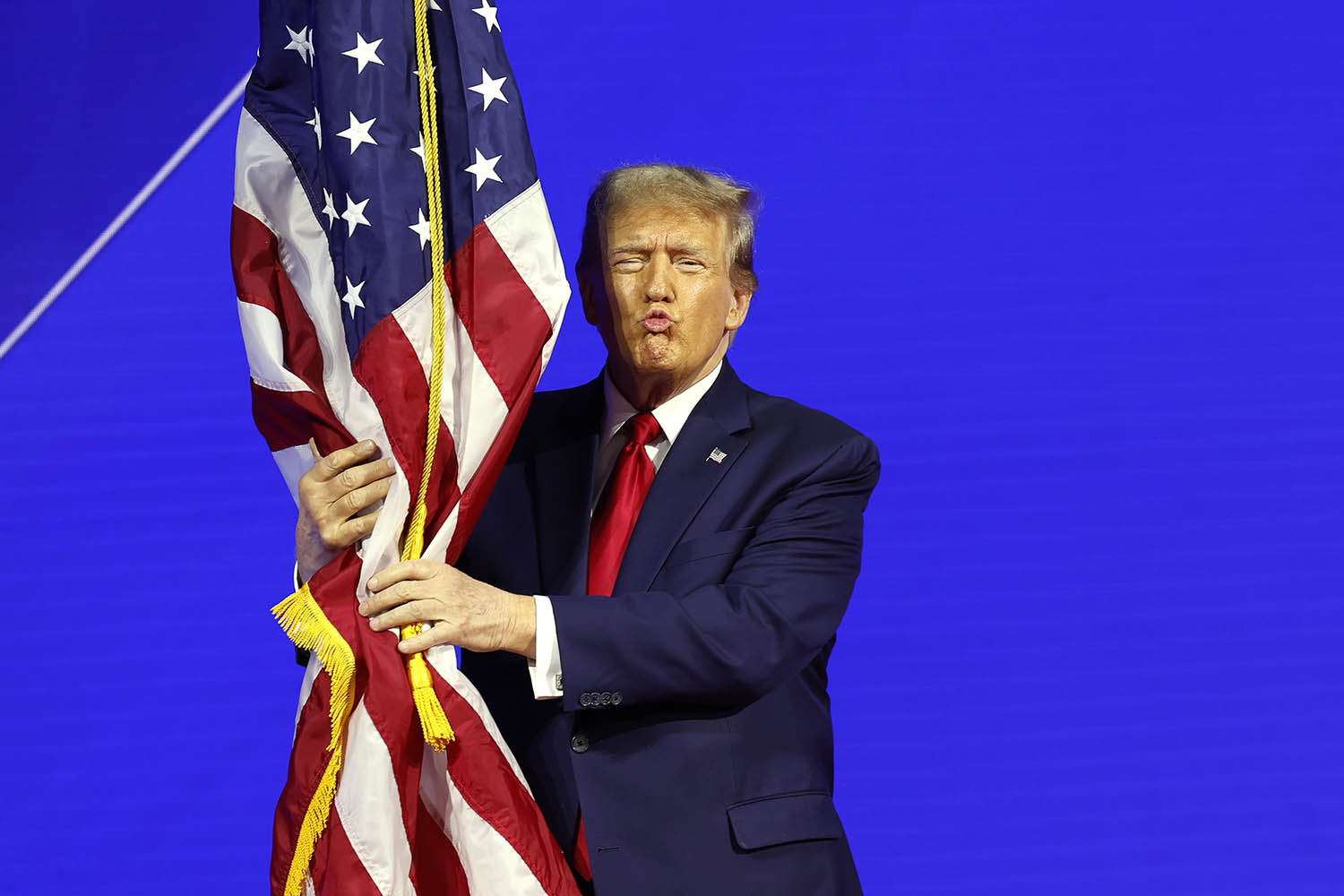
Pakistan has appointed a prime minister following last month’s disputed elections and two years of political turmoil. Shehbaz Sharif saw off candidates loyal to the imprisoned former cricketer Imran Khan to win a second term.
So what? Pakistan (population 249 million, per capita GDP $1600) needs stability and a strong government – and this result fails on both counts.
Sharif, who was prime minister from 2022 to 2023 and is the younger brother of three-time former prime minister Nawaz, has a reputation as a deft administrator. But he heads a shaky coalition, while Khan remains the most popular politician in the country despite being in prison and banned from office.
By the seats:
- 93 – won by candidates loyal to Imran Khan
- 75 – won by PML-N (Pakistan Muslim League - Nawaz)
- 54 – won by Pakistan People’s Party
- 44 – others
The elephant in the room. Pakistan is nominally a democracy, but its powerful military is the country’s most potent political force. The army denies meddling, but since 1958 – barely a decade after independence – generals have ruled directly through long dictatorships, or have pulled strings behind the scenes.
Sharif’s victory and Khan’s downfall both reflect their relations with the generals. In 2018, the military threw its weight behind Khan and he swept to power. But the honeymoon didn’t last – Khan allegedly clashed with senior officers over the appointment of the country’s spy chief and was removed from office months later, in April 2022.
The generals switched their favour to Sharif and he became prime minister.
Rough stuff. Khan continued to rail against the army chief, saying he’d been removed for standing up to America. His agitation proved to be populist rocket fuel.
Determined to stop him winning any election, the military in 2023 deployed the full weight of the state. In the months before the polls:
- Khan was targeted with more than 150 criminal and civil charges, all of which he denies.
- He was sentenced to three years in prison for corruption, 10 for leaking state secrets and 14 for unlawfully selling state gifts.
- He was banned from political office.
- His candidates were told they couldn’t use the PTI name (Khan’s Pakistan Tehreek-e-Insaf party) and had to run as independents. Party workers complained of arrest and police harassment.
But these measures only seemed to galvanise support for Khan: voting for him became a protest vote against economic mismanagement and military meddling. His candidates won the largest number of seats but not a majority; Khan refused to form a coalition with other parties, saying they were corrupt.
Khan we fix it? Anyone hoping they could bury Khan in a rigged poll and restore political stability was disappointed.
- He has made it clear he will not go quietly into exile;
- Pakistan is saddled with an unpopular and weak coalition; and
- the military, once hallowed, is now tarnished and resented.
“The military failed at decimating the PTI after the most heavy-handed crackdown a party has seen in recent decades, and Pakistanis saw that,” Madiha Afzal of the Brookings think tank says. “They have realised the power of their votes. And they will use it again.”
What’s more… Pakistan nearly defaulted last year and needs more help from the International Monetary Fund (IMF) when existing funding runs out this month. Khan’s party has asked the IMF to verify the election results before approving any further loans.


